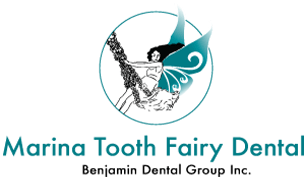
Love ‘em or hate ‘em—hormones are a part of every woman’s life. They infiltrate nearly everything, from one’s weight to mood to metabolism, but did you know that they also have an impact on one’s oral health?
Surges in hormones (estrogen & progesterone in particular) increase blood flow to the gums, causing them to be more sensitive & reactant to irritants. Increased sensitivity leads to inflammation, which then leads to gingivitis & periodontitis if left untreated.
There are five stages in a woman’s life when estrogen & progesterone levels are particularly high or fluctuating & thus worth taking extra care.
Stage 1: Puberty
Puberty is the first stage in which girls may get an increase of estrogen & progesterone hormones. This results in a variety of changes, including growth & the start of their menstrual cycle, but it also leads to increased blood flow to the gums, causing increased sensitivity & potentially swelling.
Stage 2: The Menstrual Cycle
Speaking of menstrual cycles, hormone levels are constantly in flux throughout, but it is a few days before one’s period that progesterone levels peak. Common symptoms include swollen gums, swollen salivary glands, canker sores & bleeding gums.
Stage 3: When Taking Oral Contraceptives
Certain oral contraceptives, or birth control pills, can increase or decrease certain hormones. Some pills contain progesterone, which can cause inflamed gum tissue. Others contain synthetic estrogen, which can lead to reduced levels of natural estrogen & cause temporomandibular joint (TMJ) disorder. Symptoms of TMJ include facial pain, difficulty opening & closing mouth, toothaches & earaches.
It is important to talk to your dentist about any oral contraceptives you are using to ensure that they are aware when prescribing treatment plans.
Stage 4: Pregnancy
Pregnancy is another stage in which hormones are constantly in flux. Between the second & eighth month of pregnancy, 60–75% of women can experience pregnancy gingivitis. Fortunately, pregnancy gingivitis does not affect the baby, but if left untreated, the ensuing periodontitis has shown links to preterm delivery & low birth rate.
As a precaution, your dentist may recommend more frequent professional cleanings during your second & third trimester, but typically maintaining meticulous oral hygiene should keep symptoms at bay.
Stage 5: Menopause
It is in menopause, when a woman stops getting her menstrual cycles, that the body stops producing a majority of its estrogen & progesterone. However, while this decrease in hormones avoids the type of swelling discussed in previous stages, the decline in these hormones comes with its own set of oral conditions. A woman during or after menopause may experience greater sensitivity to hot or cold drinks & an altered sense of taste. However, the most important changes to be mindful of are dry mouth & bone loss.
Dry mouth occurs due to a decreased production of saliva. However, a constant flow of saliva is important for keeping the mouth moist & neutralizing acids produced by plaque. Hence, less saliva would mean more plaque buildup & a greater chance of bad breath. To combat this, try drinking plenty of water, sucking on sugar-free candy, sleeping with a humidifier or using an over-the-counter dry mouth spray. It is also good practice to avoid sugar-y, spicy, or salty foods, alcohol, or caffeine that would make the dry mouth worse.
Bone loss may occur as a result of the decline in estrogen production. A signifier of impeding bone loss is gum recession, as this leads to more of the tooth being exposed to plaque damage & decay. To avoid this, ensure you are getting enough calcium & vitamin D on top of a regularly maintained oral hygiene routine.
Sources:
https://health.clevelandclinic.org/hormones-and-oral-health
https://www.mouthhealthy.org/all-topics-a-z/womens-hormones-and-dental-health
https://my.clevelandclinic.org/health/diseases/22484-pregnancy-gingivitis
https://www1.deltadentalins.com/wellness/menopause-oral-health.html
